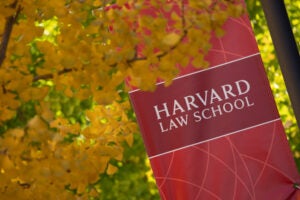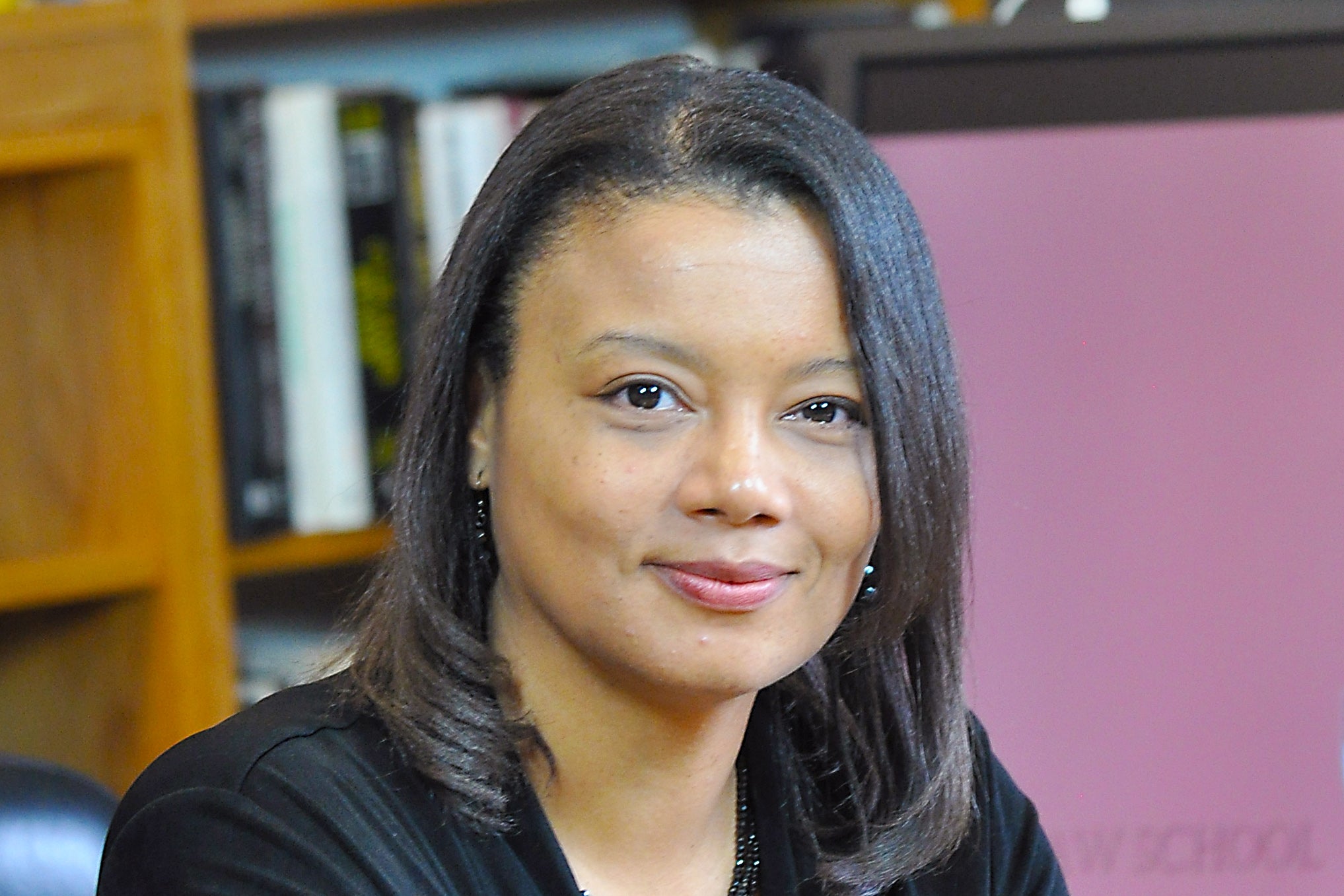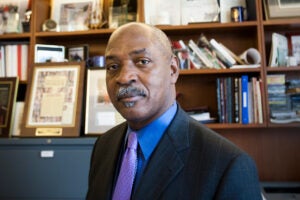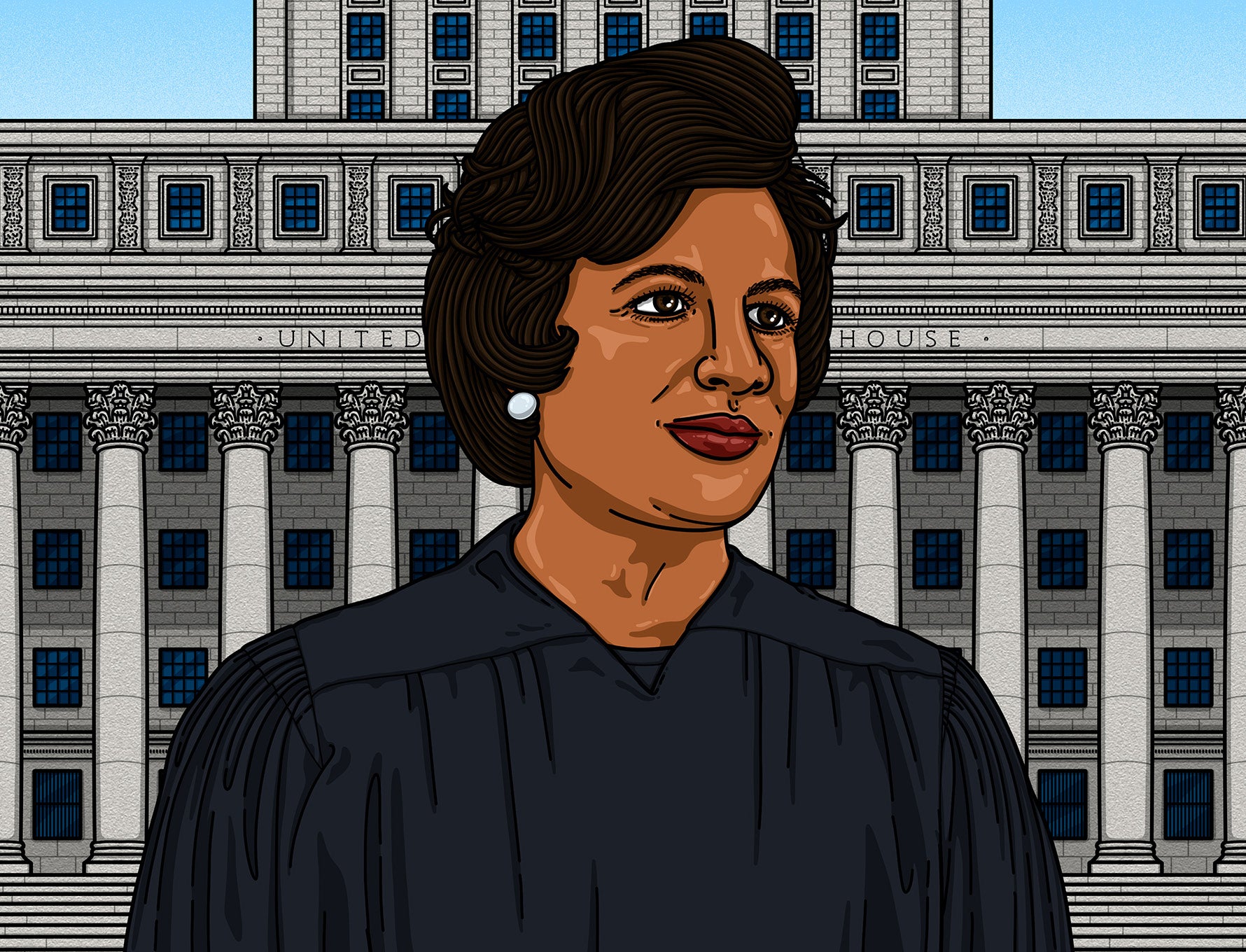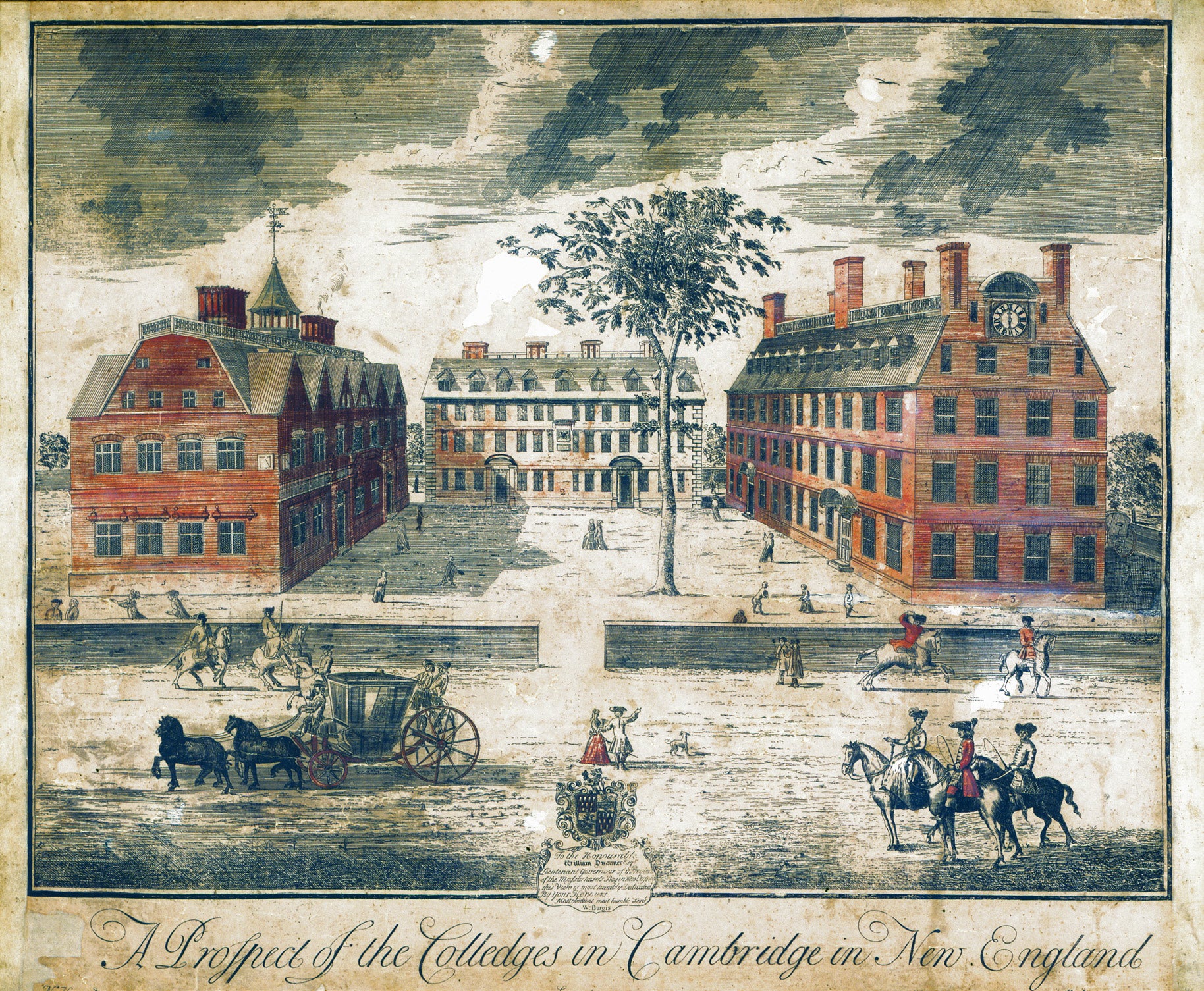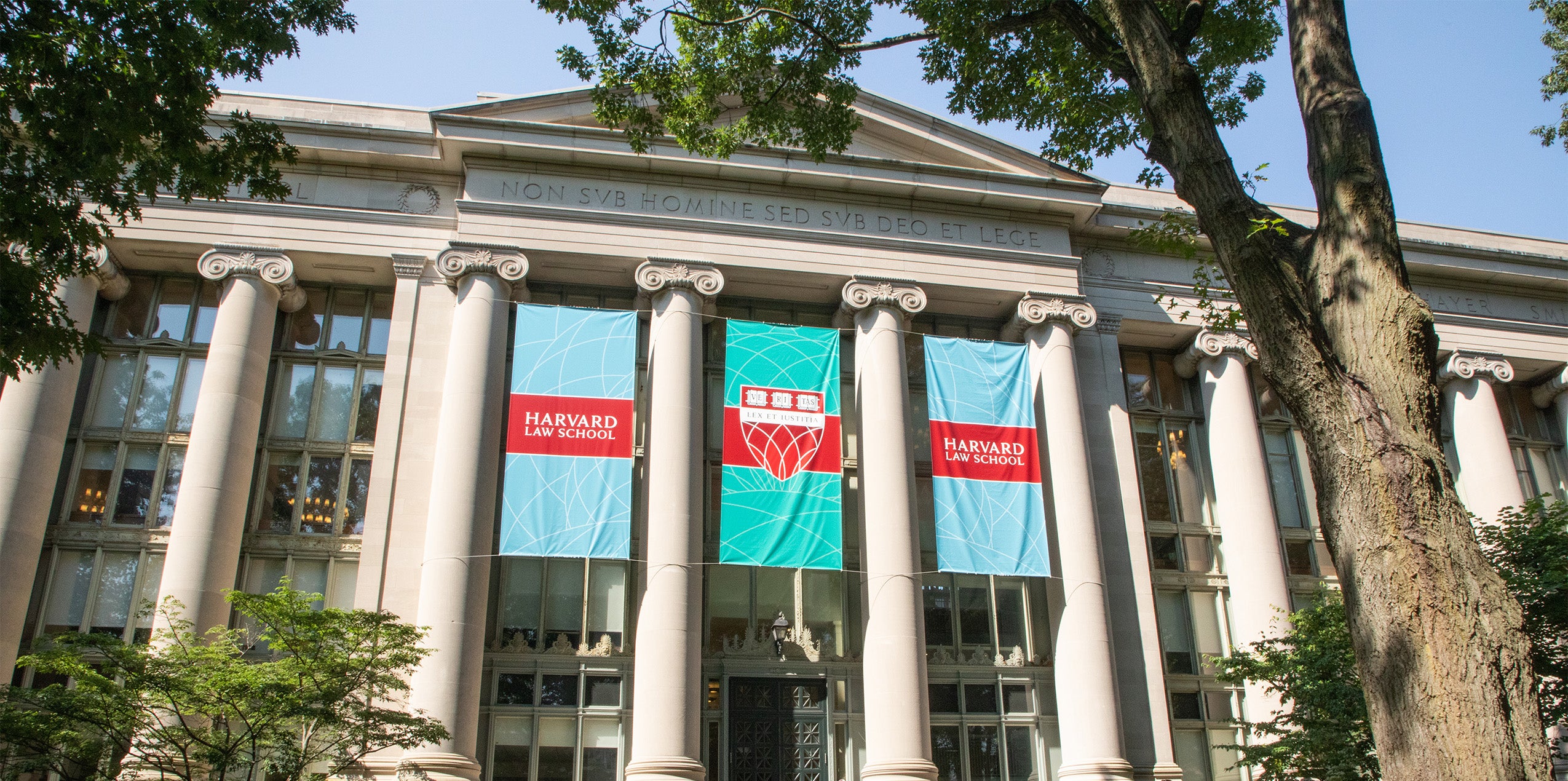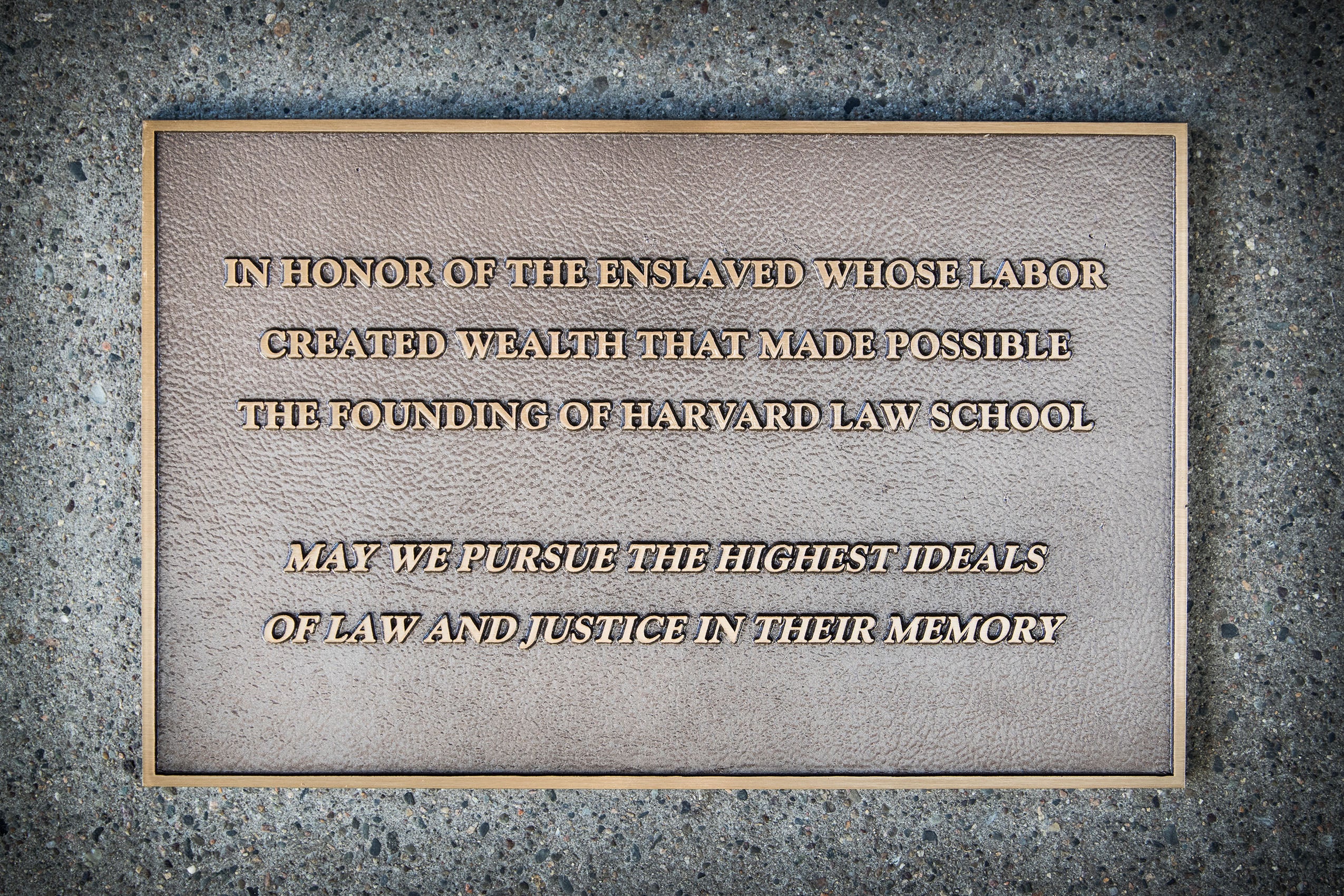People
Tomiko Brown-Nagin
-
The core mission of any university depends on the ability of students, faculty members, and researchers to follow questions where they lead without an institutional…
-
UND hosts Harvard professor in celebration of Martin Luther King Jr.
January 16, 2024
Harvard law professor Tomiko Brown-Nagin spoke at a Martin Luther King Jr. Day celebration at the University of North Dakota in Grand Forks. Brown-Nagin is…
-
Finding right mix on campus speech policies
December 15, 2023
The central question facing the nation’s college and universities, which have been roiled by protests since the deadly surprise Oct. 7 attack by Hamas on…
-
Finding the right mix on campus speech policies
December 15, 2023
Legal and political scholars discuss balancing personal safety, constitutional rights, and academic freedom amid roiling protests and cultural shifts.
-
Free Speech on Campus
December 14, 2023
On Tuesday evening, one week after the Congressional hearing that prompted demands for President Claudine Gay’s dismissal and less than 12 hours after Harvard Corporation…
-
Harvard Law Professor Tomiko Brown-Nagin Honored with Prestigious Order of the Coif Book Award
December 7, 2023
Tomiko Brown-Nagin, dean of the Radcliffe Institute for Advanced Study and Daniel P.S. Paul Professor of Constitutional Law at Harvard Law School, has received the…
-
Faculty honored for recent work, career achievements
December 6, 2023
Several Harvard Law faculty members have received accolades for their work and lifelong scholarship and achievements in recent months.
-
Tomiko Brown-Nagin receives Order of the Coif book award
December 5, 2023
Tomiko Brown-Nagin, dean of the Radcliffe Institute for Advanced Study and the Daniel P.S. Paul Professor of Constitutional Law at Harvard Law School, received the 2023 the Order of the Coif award for her book “Civil Rights Queen: Constance Baker Motley and the Struggle for Equality.”
-
Charles Ogletree Jr. : 1952-2023
August 5, 2023
Charles J. Ogletree, Jr. ‘78, or Tree, as he was affectionately known, the celebrated, influential, and beloved Harvard Law professor and civil rights scholar, died peacefully on August 4 in his home in Odenton, Maryland, from the natural progression of Alzheimer's disease.
-
Radcliffe Parole Reform Panel Features Rapper
May 3, 2023
Five years after his high-profile release from prison, Grammy-nominated rapper Meek Mill spoke at Harvard’s Radcliffe Institute about reforming the American parole system. Mill joined…
-
Ophelia Dahl to receive 2023 Radcliffe Medal
March 9, 2023
Ophelia Dahl, the internationally recognized health care and social justice advocate and one of the founders of Partners In Health, will receive the prestigious Radcliffe…
-
Change the Senate
November 30, 2022
Many analysts and citizens believe that the Constitution, more than 230 years old, is out of touch with contemporary America. We asked the scholars Danielle…
-
Enshrine an affirmative right to vote
November 21, 2022
Tomiko Brown-Nagin argues that a Constitutional amendment enshrining the right to vote would demonstrate ‘absolute commitment’ to full participation in U.S. democracy.
-
The Civil Rights Queen and Her Court
July 16, 2022
Tomiko Brown-Nagin’s book recounts the remarkable — and too little-known — life and achievements of civil rights lawyer and judge Constance Baker Motley
-
Reckoning with a Painful Legacy
July 14, 2022
Harvard issues a report on the university’s connections to slavery and its long history of discrimination against Black people long after slavery was abolished by the 13th Amendment.
-
“An institution entangled with American slavery and its legacies.” That was how a faculty committee described Harvard University in a landmark study documenting, in unflinching detail, the school’s extensive ties to slavery. The report detailed how enslaved people worked on the campus for more than 150 years, how the school benefited from deep financial connections to slavery and how its academics promoted racist theories. At a time when some are trying to whitewash U.S. history, this bracing honesty is most welcome. ... Harvard is not the first university to try to come to grips with its problematic past. Indeed, it has lagged behind others, such as Georgetown University and Brown University, and its efforts came under immediate criticism. Why did it take Harvard so long? Couldn’t $100 million be better spent directly helping the victims of bigotry and belittlement? The university expected this criticism. “We are not naive. This is an age of deep social divisions, and we know our efforts may be met with criticism and cynicism,” Harvard President Lawrence S. Bacow and Tomiko Brown-Nagin, the scholar who led Harvard’s effort, wrote in The Post. The university can show its commitment to making amends by ensuring its money goes to causes that achieve maximum good for those still struggling under the country’s brutal legacy of slavery and racism.
-
Harvard and the Legacy of Slavery
April 28, 2022
A report issued by the Presidential Committee on Harvard and the Legacy of Slavery recounts the many ways Harvard University participated in, and profited from, slavery. Harvard leaders and scholars examine the report and its implications for the future.
-
Understanding the legacy of slavery
April 28, 2022
Following the release of a report by the Presidential Committee on Harvard and the Legacy of Slavery, Harvard Law Dean John F. Manning has announced initiatives to honor the enslaved people whose labor generated wealth that contributed to Harvard Law School’s founding.



